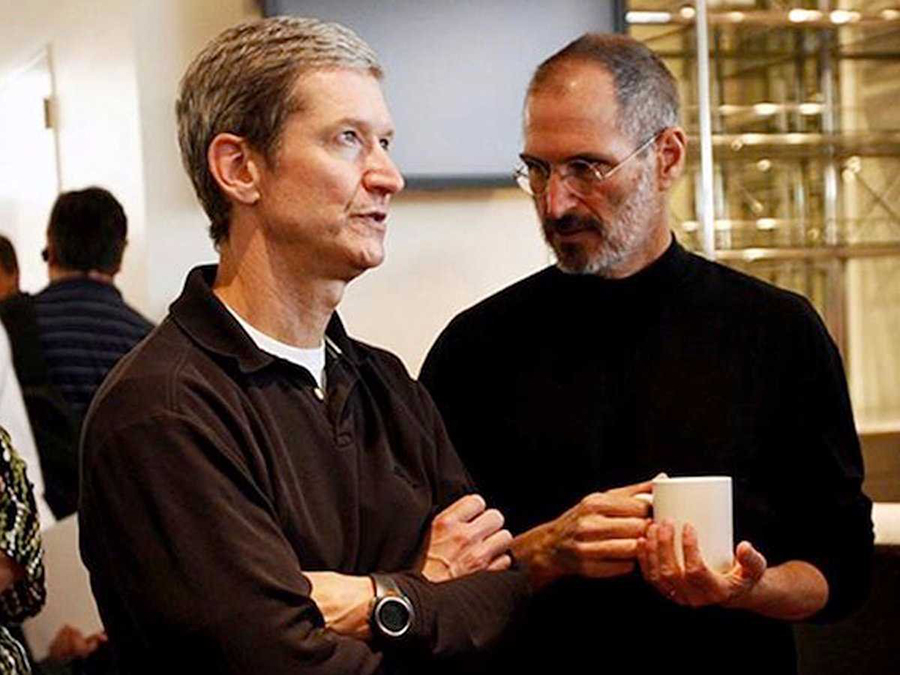Steve Jobs was wearing jeans and sandals under a black graduation gown as he stepped to the podium to deliver Stanford University’s commencement address in June 2005.
It was quite a scene, with some 23,000 faculty members, alumni, newly minted graduates, and their parents jamming the floor and bleachers of the school’s football stadium. After all, who better than this icon of personal technology, the legendary entrepreneur who started up Apple Computer—soon to be the world’s most valuable company—to tell them how to capitalize on their prestigious college degrees?
What was Jobs’ message to the overflow crowd? That a top-notch education, or brilliant track record, would not be enough to save them when, inevitably, a crisis turned their best-laid plans upside down.
It’s a crucial lesson for all of us whose businesses or careers have been upended by the COVID-19 pandemic.
Lesson #1: When Crisis Strikes, Focus on the Future
Jobs told his audience that it would be their ability to create anew—rethink, reimagine, and reinvent the future—that would ultimately shape their long-term success.
As was the case when Jobs was forced out of his job at Apple.
“I didn’t see it then, but it turned out that getting fired from Apple was the best thing that could have happened to me,” Jobs said. “It freed me to enter one of the most creative periods in my life. The heaviness of being successful was replaced with the lightness of being a beginner again, less sure about everything.”
Over the next five years, Jobs introduced a revolutionary new computer operating system called NeXTSTEP, which became a critical building block of the internet. He also purchased and reinvented Pixar, a small computer graphics company, turning it into an animation company that launched a lucrative new era in filmmaking.
As Walter Isaacson noted in his biography of Jobs: “He was a master at putting together ideas, art, and technology in ways that invented the future.”
“Sometimes life hits you in the head with a brick,” recalled Jobs. “Don’t lose faith.”
Instead, start creating the future.
Lesson #2: Creativity Is a Verb
Prolific creators of all kinds have a vastly different understanding of creativity than many of us.
From deep experience, they know that, contrary to what we’ve frequently been told in classrooms, books, consulting sessions, or TED talks, creativity is not a spark of genius, a personal trait to be emulated, or the unique domain of specific organizations or teams.
Instead, it’s the result of a series of verbs, a strategy of actions, that any of us—whether we’re a business leader, manager, or career professional—can learn and apply to better surf the waves of the COVID economic crisis and position ourselves for future success.
The experience of another iconic American creator who was faced with a triple-header crisis gives a taste of the strategy.
Lesson #3: Pay Attention to the Evolving Market
In the 1920s and early ‘30s, three consecutive crises barreled down on Walt Disney’s business and career track when he initially tried to get started in Hollywood.
First, Universal Pictures finagled him out of the rights to his first major cartoon character and hit movie. Second, theater owners refused to show films he subsequently made. Finally, and you would think this would be the last straw, the Great Depression struck.
But through it all, Disney focused on an observation that only he, among filmmakers, had made about the quickly evolving movie marketplace: audiences of all ages, especially children, loved seeing cute little animals with human characteristics and personalities.
As Disney put it: “Unless people can identify themselves with the character, its actions will seem unreal. And without personality, a story cannot ring true.”
Making this observation while in the throes of crisis was the first step, the initial act, in Walt Disney’s creative strategy—the underpinning of a process that led to the invention of Mickey Mouse and the subsequent launch of Disney’s entertainment empire in the depths of the Great Depression.
Wrote one chronicler of the times: “Mickey Mouse became the one thing people could smile about. His indomitable spirit, as well as the technological advances that Disney displayed in those first cartoons, struck a chord with movie-going audiences. People became invested in Mickey Mouse. In rooting for Mickey, audiences were cheering their own success, as well.”
The worse the economy became, the more Mickey was in demand. And by 1938, when there was light at the end of the tunnel, Mickey was credited not only with spreading joy, but with concretely assisting America’s recovery, as the production of hundreds of Mickey Mouse branded products—from wristwatches to playing cards, pencils, marmalade, breakfast cereal, table covers, and bracelets—helped to reopen factories, and provide thousands of new jobs.
In a time of deep national crisis, like today’s COVID-19 pandemic, Walt Disney observed the evolving marketplace, and with this as his starting point, built a global business like nothing the world had seen. When he was asked, as he often was over the years, how he first began creating his entertainment conglomerate, he was known to respond: “I hope we never lose sight of one thing—that it was all started by a mouse.”
Keep this front of mind as your business begins turning the page on the coronavirus crisis: a savvy observation, perhaps one that only you or your team will make, could change the shape of your future.




































